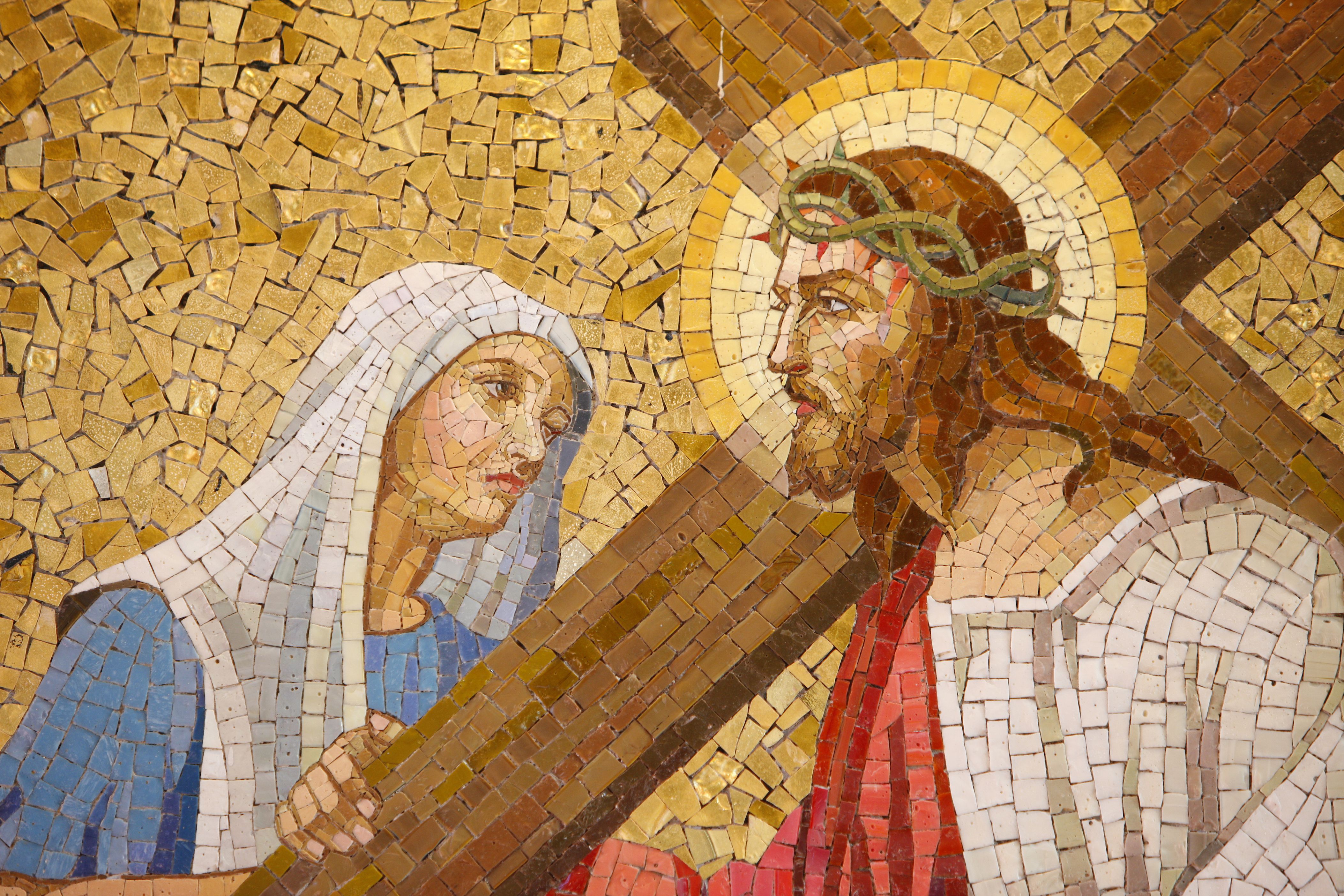
27 Aug Reflections on the Pattern of Love
According to the first Epistle of St John, [in] this is love, not that we loved God but that He loved us and sent His Son to be the expiation for our sins. What this tells us is that God’s heart is already turned towards us, in advance of expiation for sin. This is why His Son comes among us in the first place. St John couldn’t be clearer: God, Who is love, loves us always, and the Incarnation is not the cause of this love, but rather its manifestation among us. In other words, the Father loves us in spite of sin. It is easy to forget this, to fall into thinking that sin makes us unlovable in God’s eyes, and that therefore something has to happen in order to change things, in order to make us lovable once more; and this, we assume, is the Incarnation, and above all the Paschal Mystery. But this isn’t right. St John’s teaching is the same as St Paul’s in his Letter to the Romans, where we are told that God shows His love for us in that while we were yet sinners Christ died for us. Sin, then, does not make us unloved, and in coming among us it is not Christ’s purpose to make us lovable once again. Instead, Christ is the One Who manifests to us that, even in our sin, God loves us, and therefore, because He already loves us, desires sin to be overcome.
What difference, then, does sin make? We can put the answer this way: sin does not mean God’s estrangement from us: it means only our estrangement from God. He has never ceased to love us, but through sin we have fallen away from the love that He offers us in offering Himself. As Christ expresses it in St John’s Gospel, God always chooses us, but because of sin we do not choose God. This is the situation which the Incarnation elucidates for us and promises to overcome. Our sin is revealed, in Christ, as a failure to love: it is shown up as our failure to correspond with the love that creates and sustains us from the beginning. God’s love for us is always the first and absolutely unconditional truth, which clarifies the being of the world and everything in it: Divine love is the foundation that can never be truly forgotten or surpassed. And yet, because of sin, we do not abide in that truth, but have turned away from it, creating a world within a world, hiding from ourselves the love that always shelters and invites us. But, in Christ, the love from which we have been hiding is made newly and definitively manifest; and we are recalled to it, summoned once more to live in the light which it casts, dwelling in fellowship with the love with which God loves us. It is in this way, as St John tells us, that God abides in us and His love is perfected in us.
And this perfection has a very specific character: it consists in loving one another. It is only in loving one another that sin is overcome, humanity is reborn, and God, Whom no one has ever seen, nonetheless makes Himself known to us. St John is perfectly explicit about this: [he] who does not love, he tells us, does not know God. And so there is no other way in which estrangement from God can be overcome, no other way in which we can come to know Him again, than through the love that human beings show for one another, for only in this way do we come to life through Him, as St John explains. The essential insight here is that God does not offer Himself to us as an object of love, indeed in that way He makes Himself invisible to us. Instead it is in the circulation of love among ourselves that God gives Himself, between us and within us. In the language of St John’s Gospel, it is in loving one another that God’s love for us bears lasting fruit. In fact it is only in this way that it does so. Divine love seeks only this, to propagate itself by diffusing itself among us. Nothing else is asked, than that we discern the pattern of Divine love revealed in Christ and make it our own pattern, thereby loving as we are loved.
And what is that pattern, what is this love that seeks only one thing, which is to generate itself among us? The answer given in St John’s Gospel is in one way very concrete, but in another sense leaves everything undetermined: Greater love has no man than this, Christ tells us, that a man lay down his life for his friends. This is the pattern, the love, which is shown us: the love of God in Christ. What remains is to begin to grasp what this is already asking of us, here and now, and what it opens up for each one of us in what lies ahead. Such forms of love are always different, indeed unique, in every case. To be a Christian consists in nothing other than the discovery of this uniqueness: I must find the singular ways in which I am called to lay down my life, to love as God loves in Christ. And for whom? Who are my friends? Christ, the Son of God, comes among us as the son of man. This means that we are Christians not for ourselves – of course – but for others, and for everyone.
By Fr Philip Cleevely, Cong. Orat.

